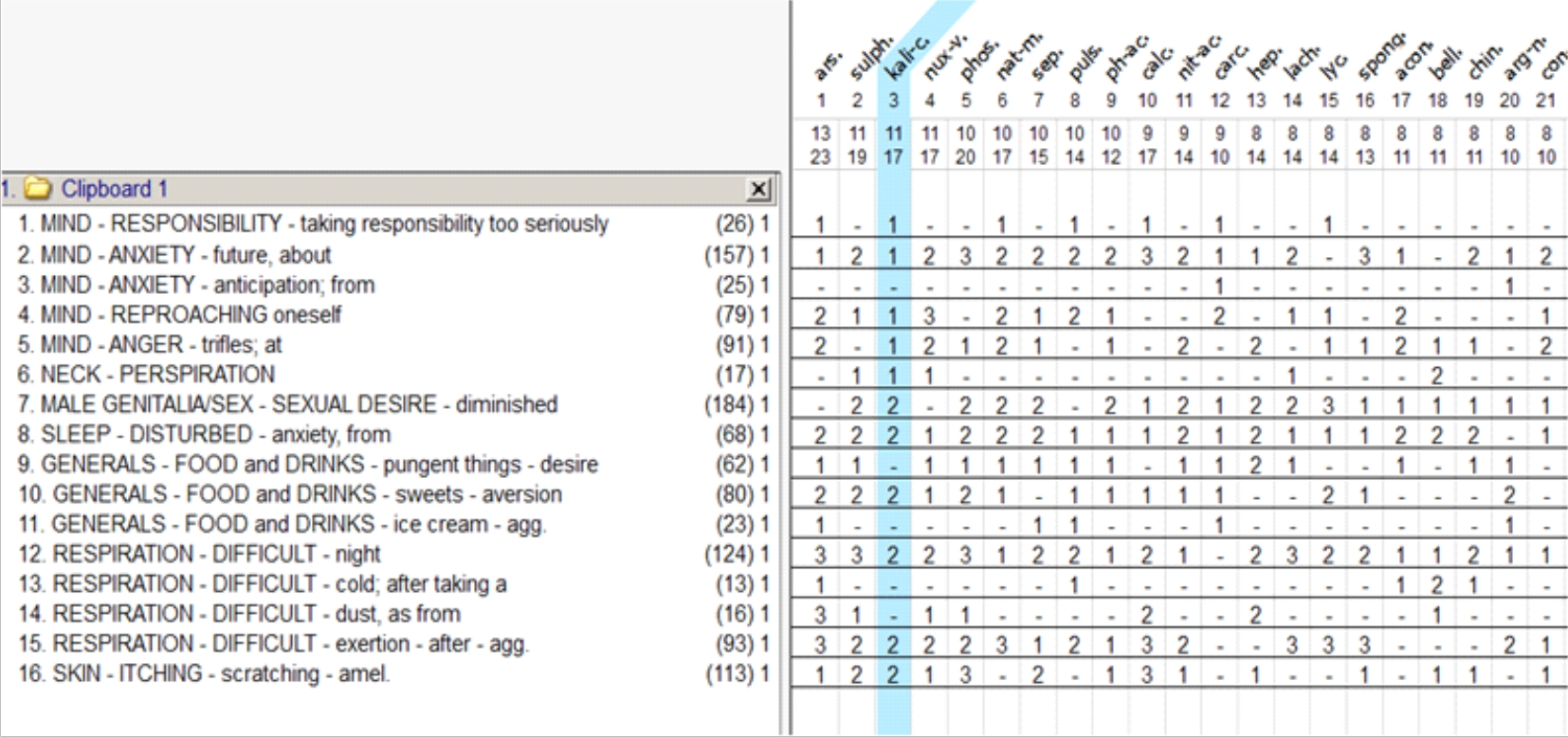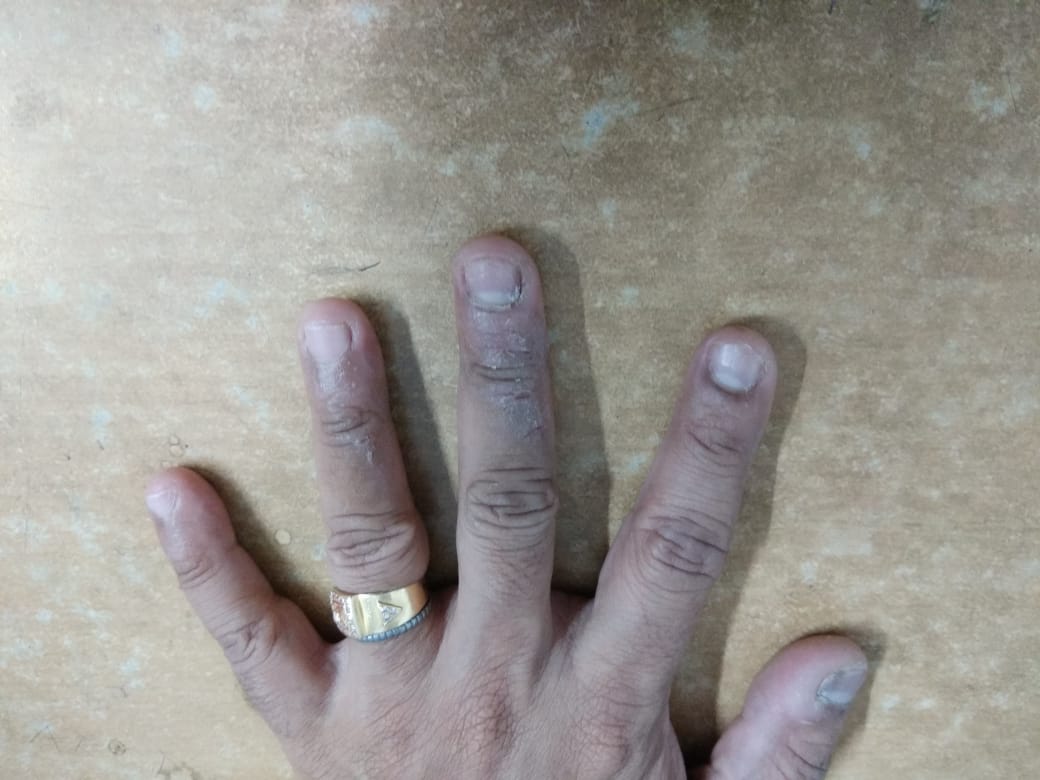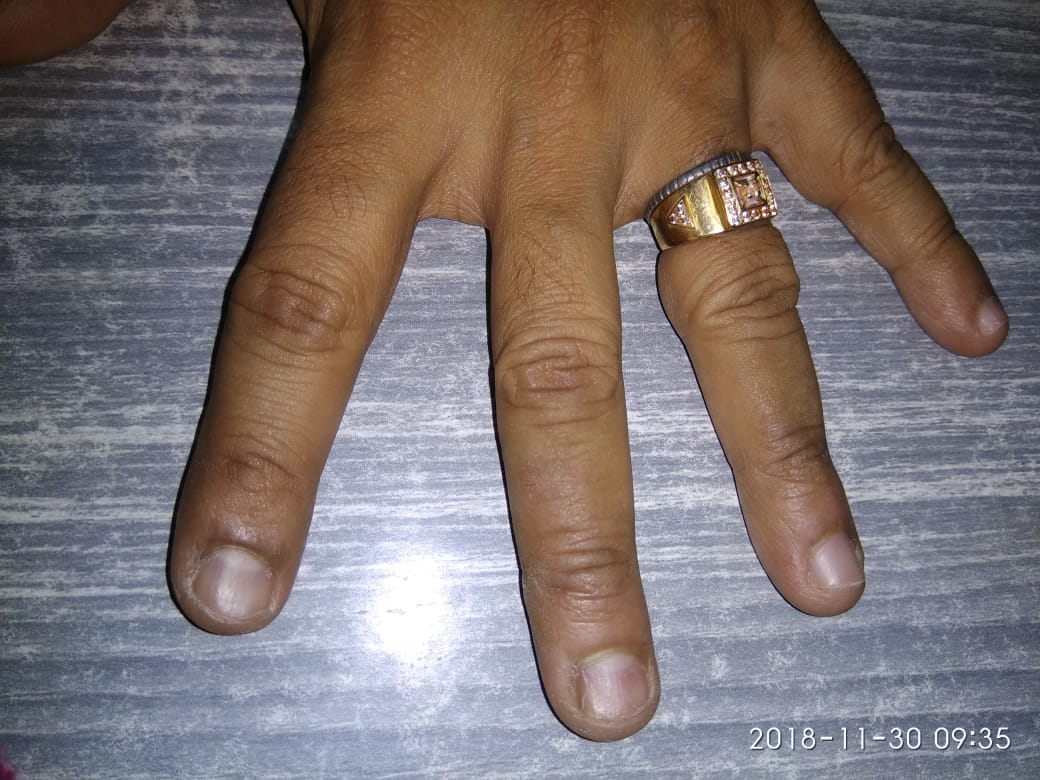A SENTIMENTAL MAN CAUGHT UP IN A WEB OF RELATIONSHIPS: A CASE REPORT
Shama M. Rao MD (Hom)1*, Anjali R. Joshi (BHMS, MBA Health Care Services)2
1 Professor & Head, Department of Practice of Medicine, Dr M. L. Dhawale Memorial Homoeopathic Institute, Palghar
2PG Student, Part-II, Department of Homoeopathic Materia Medica, Dr. M. L. Dhawale Memorial Homoeopathic Institute, Palghar
*Corresponding Author: Dr. Shama Rao
Email: rao.shama@rediffmail.com
How to cite this article:
Rao SM, Joshi AR. A sentimental man caught up in a web of relationships: a case report. Journal of Integrated Standardized Homoeopathy (JISH) 2019; 02(02)
Received on: May 28, 2019
Accepted for Publication: July 12, 2019
ABSTRACT:
The case report demonstrates the dilemma of a 38-year-old man with allergic rhinitis. The patient was a man stuck in his responsibilities as a son having sentiments for his father and his responsibilities towards his own daughter. This case shows the sensitivity of a man towards the dominance of his father who at the same time feels guilt for confronting his father. This case also helps to understand the sensitivity, sentimentality, anxiety, and attachments in an individual, all of which help us to understand Kali Carb as a remedy in an evolutionary form.
Keywords: Attachment, Sentimental, Kali Carb, Responsibility, Guilt, Anxiety
CASE REPORT:
Preliminary Information
| Case Registration No: D/187/17 | Name: Mr. D S | Date Of Case Taking: 12/10/18 (Review) |
| Age: 38 years | Sex: Male | Education: 14th std |
| Marital Status: Married | Diet: Veg. | Religion: Hindu |
| Address: M | Occupation: Sales Executive Manager | Father: 60 years |
| Mother: 58 years | Brother: | Sister: 2- 45 years, 43 years |
| Spouse: Mrs. C S | Age: 38 years | Occupation: Housewife |
| Children: 2 | Son: 8 years | Daughter: 11 years |
Note: The following case is a review of previously defined case that was not better with Silicea, which was administered to him for almost 5 years. His respiratory symptoms and skin symptoms were continuous. This review (on 12 Oct. 2018) led to the patient’s subjective amelioration.
Chief Complaint:
| Location | Sensation | Modalities(A/F,<,>) | Accompaniments |
| Respiratory system
Nose Since 11-12 years increase 3-4 years O- gradually D- ½ to 1 hour F- 2-3/month P- progressive |
Difficulty in breathing+1 ( feels like m losing my breath)
Nose block – has to breath from mouth+2 (I can’t laugh continuously) Sneezing+2 Cough (Occ.)à yellow or white expectoration
|
< dust+3
<pollution+3 <ice cream+3 <talking+2 <lying on back+2 < 10am to 5 pm+2 < chocolate+2 <night+3(11-12am) <physical exertion+2 >Bronchodilator (Foracort 200) (pt. used to take on his own, without prescription of doctor since 8-9 years) |
Diagnosis: Allergic rhinitis with swollen+2 turbinates.
Associated Complaints:
| Location | Sensation | Modalities (A/F,<,>) | Accompaniments |
| Integumentary system
Nape of Neck Behind ear lobe Since 4 years Increased since 1 year Hands & fingers since 6 months |
Reddish, dry skin+2
After that blackish discoloration Itchingà bleeding No cracking of skin No pain |
>Lotion application
>Scratching+2 |
Diagnosis: Dry dermatitis.
Patient as a Person (Attributes and Functions):
Appearance: lean & thin with wheatish complexion
Perspiration: moderate – on forehead & neck+2
Digestion: Appetite: Normal, hunger tolerable Cravings: Pungent+2, Aversion: Sweets+2
Eliminations:- Stool: Normal, Urine : Normal
Sexual Function: Frequency decreased+2- Once in 1-2 months due to stress since last 8 years
Sleep: 8-9 hours- unrefreshing due to nose block, disturbed due to anxiety+2
Thermal State: Fan full desire in all seasons, Covering – thin in summer, thick in winter,
Bath – warm water in all seasons. Chilly
Physical Examination: General: T – Afebrile PR-74/min. RR- 20/min. BP- 110/80 mmHg
Systemic examination: RS- AEBE clear P/A- Soft, NT/ND CVS- S1S2 normal CNS- Conscious & oriented L/E- Enlarge nasal turbinates+2, Throat – Clear
Medical History: Not available Family History: Mother – DM, HTN
Life Space:
The patient was born & brought up in an orthodox Gujarati family. His father was very strict, shouting at them when they didn’t study. The mother was very caring & loving in nature. The patient has two elder sisters, has good relationships with them; he was pampered a lot as a child. He said that as a child, he was not irritable or obstinate, and didn’t throw tantrums, he was calm & quiet. His childhood was good. He was emotionally attached to his parents.
In school, he had few friends. He did not interact too much with anyone, nor participate in any extra-curricular activities due to performance anxiety. He was happy in his own world. His sisters taught him and he did well in academics. Due to financial difficulties (in his sister’s marriage) he left studies after 11th Std. and started work with support from his brother-in-law. Though not ambitious career-wise, he liked the independence that his earnings afforded him. Till date, he is working in the same company.
Work stress makes him irritable in the office. His fear & anxiety about his performance reduced with experience. After his transfer to the sales department, his initial anxiety about interacting with customers reduced as he observed others. He started interacting with the customers confidently & became more vocal.
He doesn’t like to share his feelings (personal & family matters) with anyone, thinking that others may not understand his problems and experience and may pass comments, due to which he would feel bad.
He had an arranged marriage. His wife had some issues with her appearance & self-confidence. The patient always supported her. At home, his wife has some conflicts – his father is dominating and taunts his wife, making her angry and leading to many fights. He tried to talk to his father but it didn’t work. He wanted to hire a maid for household work but his father didn’t allow this, saying “this is my house and you have to stay according to my will”. The patient got angry, felt misunderstood, got irritable at small fights and raised his voice. Therefore, he shifted to a separate flat with his wife and daughter when his wife was pregnant for the second time.
Another reason for separation was that in 2009-10, his daughter had some complaint in her genitals for which his wife took her to the gynaecologist. The doctor noted redness & swelling in her genitalia & something had happened to her (? sexual assault). This shocked the patient. The daughter said that her grandfather did this. The wife asked him to talk to his father several times, but he could not, out of fear, sentiments, and respect for his father, and because he could not believe that his father could have done something like this.
In those days, he felt better in the office but would get stressed and anxious in the evening, especially about facing his wife again. This lasted for 5 – 6 months. He was stuck between his responsibilities as a son and as a father. Finally, one day he got angry and spoke to his father. The father denied it and shouted about being blamed. The patient decided to get separated.
After separation, he keeps brooding about this. He cannot accept his father as the culprit, especially since the mother said that the father was crying afterwards. However, he also feels that his little daughter cannot lie. He is anxious about facing his father if he is innocent, feels that God will not forgive him for blaming his innocent father. So, every day he prays to God to show some indications that would prove him guilty. Since this issue, his sexual desire has reduced. After separation, he is still taking care of his parents, as he is the only son in his family. He worries about what will happen to them after him.
He is also currently repaying a bank loan for the new flat, about which he is quite stressed. He is attached to his children the most. He takes them out when he gets time; he likes to spend time with them, and doesn’t like to be alone at home. He likes to play old music & sing.
Since 1-2 years, he has work stress leading to anger at trifles. For 2 years, the company sales have been reducing leading to anxiety about future and about loan repayment. He has constant thoughts & anxieties in his mind. He takes the responsibility of work completion on himself and gets anxious. There is no pressure of the higher authority on him. For example, even if he is tired, he will not take even a day off. Since 5 – 6 months, his irritability has increased. If someone argues with him, he gets aggravated and stops talking to that person.
He shouts when angry, his hands tremble and he likes to be alone. His anger lasts for 10-15 minutes, after which he feels guilty. He is sympathetic to others’ pain.
The Understanding of the Patient:
The patient had a pampered childhood. Since childhood, he is attached to his parents the most. His world has revolved around them. He is a very timid and anxious person with few friends. There is marked anticipatory anxiety, especially about his future and work stress. He is conscientious about his work. In the family conflict, he was stuck between his father and his daughter and got confused, feeling torn between his parents & his wife. Out of sentimentality, respect, and attachment towards his father, he could not talk to him about his daughter’s issue. Since this issue, as his wife is against his father, he has stopped giving importance to her sexual needs. His own sexual desire has reduced. He blames his father, but he also has guilt towards the feelings. After separating from his parents, he still feels responsible towards them. Due to tension in the family and work area many times, he feels irritable. The patient’s core can be defined as:-
| Attachment+2
Anxious+3 Timid+2 Conscientious+2 Responsible+3 Irritable+2 |
| Patient |
| Anticipatory anxiety
Guilt, Self Reproach Anger at little trifles Fear with anxiety Responsibility towards family, sentiments for the father – son bond Not able to take right decision in daughter’s issue, lack of confidence, could not fight back Torn between parents and wife Complex of relationships Still take care of his parents |

Understanding of Disease:
The 3 criteria used for clinical diagnosis are:-
- Symptomatology
- Investigations
- Examination findings
In this case, the patient reported shortness of breath, air not inhaled sufficiently. Whenever he felt like this, he used a dilator pump although his chest examination never revealed any spasm. We need to keep in mind the possibility of bronchial asthma as a clinical diagnosis. Although the pulmonary function test enables a decisive diagnosis in such cases, it was not performed in this patient.
Allergic factors leading to rhinitis are present. On examination, the nasal turbinates showed hypertrophy obstructing the entry of the airflow and leading to breathlessness. Radiographs of the nose or paranasal sinuses were not done to support this. He was not administered any acute remedy for shortness of breath.
Action taken:
The case was reviewed on 12/10/18. The patient was kept on placebo for 2 weeks and the indicated remedy was administered afterwards. During review, the physician had avoided the very sensitive issue of the daughter’s trouble to give space to the patient. During follow-ups, he revealed this issue on his own. This spoke of the rapport building up between the physician and patient.
Approach: Kent’s approach was used as more qualified mental symptoms and particulars were present.
Totality of symptoms:
- Responsibility for duty and family+3
- Anxiety about future+3
- Anticipatory anxiety+3
- Anxiety about work+2
- Guilt+2
- Anger at little trifles+1
- Anger with slurred speech+1
- Perspiration on neck+2
- Sexual desire reduced+2
- Sleep disturbed due to anxiety+2
- Desire for pungenent+2
- Aversion for sweets+2
- Aggravation from Ice-cream+3
- Difficulty in breathing aggravation in night+3
- Difficulty in breathing aggravation after ice cream+3
- Difficulty in breathing aggravation from dust+3
- Difficulty in breathing aggravation from exertion+2
- Itching ameliorated from scratching+2

Materia Medica Differentiation:
Three remedies – Silicea, Kali Carb, and Arsenic were differentiated. Considering the anxiety expressed by the patient, his sense of responsibility and conscientious attitude, Silicea was selected for him. This didn’t help him for 5 years, since it didn’t cover his core.
This patient is not only anxious but also invests deep sentiments in his relationships. His attachment to his parents makes him a responsible dutiful son. His bond with his father prevents him from understanding that his father can be wrong. Hence, he cannot stand against his father though he dislikes his father’s dictatorial behaviour.
He was pulled in two directions due to conflicts between his father and his wife. His sense of responsibility towards his wife and daughter led to him deciding to separate from his parents.
The sandwiched son in the role of a father confronted his own father regarding sexual abuse of his own daughter, due to wife’s constant pressure. He still feels guilty for confronting the father. He kept praying to God to prove his father guilty, so that his guilt as a son will go away.
This tearing apart of this sentimental sensitive person between the pressures of being a son and a father, was perceived as the core conflict. This led to the selection of Kali Carb.
Kali Carb also has main action on serous & mucous membranes and chest (1). Kali Carb has a strong sense of duty and responsibility; he is doing what must be done. Kali is liable to be dutiful. They want company but not sympathy. They cannot stand up for themselves (2).
Kali carb is sensitive to emotions and environmental changes but does not express this sensitivity, leading to sleeplessness (3). Dr. J. T. Kent says about Kali that there is anxiety on waking. Kali suffers especially after the loss of some important source of security, such as job or partner. They get extremely irritable, quarrel with their family and with their bread and butter. They don’t want to be alone. Kali Carb is oversensitive to everything, especially atmospheric change. They feel miserable and hurt, but cannot fight back. This remedy is more anxious and all troubles come from anxiety (3).
Arsenic is also one of the anxious remedies but arsenic usually gives an impression of confidence in public, the onset of anxiety is sudden with characteristic features of fear – fear of death and illness. An anxious arsenic person comes with restlessness – (Dr. J. T. Kent -“Anguish driving him from place to place). Arsenic too has attachment but has a stronger ego than Kali. Arsenic tends to be passionate and determined whereas Kali is sensible, logical & responsible. So Arsenic is ruled out since there is no Arsenic anxiety (5).
Final remedy: Kali Carb 200
Follow up criteria:
- Irritability
- Difficulty in breathing at night
- Nose block at night
- Dryness of finger
- Itching- fingers
Follow up summary:-
| Date | 1. | 2. | 3. | 4. | 5. | Remedy |
| 12/10/18 | SL | |||||
| 19/10/18 | Reduced +2 àfelt mental peace this week à (“I am feeling Peace, anxiety & irritability has reduced”) | Decrease+2 | Decrease+2 | SQ | SQ | SL |
| 26/10/18 | Reduced +2 | Decrease+2 | 0 | SQ | Increase | Kali Carb 200 1PHS |
| 2/11/18 | Reduced+2 | 0 | 0 | >+2 | >+2 | Kali Carb 200 1PHS |
| 16/11/18 | >+3 | >+2àPatient went to hilly area so had difficulty in breathing once but it was mild in intensity like previous. | 0 | >+2 | 0 | Kali Carb 200 1PHS |
| 30/11/18 | >+3 | 0 | 0 | >+3 | 0 | Kali Carb 200 1PHS |
| 27/12/18 | >+3 | 0 | 0 | >+2 | 0 | Kali Carb 200 1PHS |
In further follow-ups the patient continued to be better in RS and Skin complaints. Kali Carb 200 3P was continued for almost one year. Recently some financial issue has come up at his work place around 2 – 3 months back, where he too was involved. This led to insecurity about his job. The mounting anxiety again led to breathlessness and he started reusing the bronchodilator pump. The potency was increased to Kali Carb 1M, which gave relief.
Learning derived through the case:-
This case helps to understand the following aspects:-
- Learning indications, scope, and importance of review of the case.
- Role of the physician-patient relationship in patient management.
- A sensitive handling of the patient during the interview allowed him to freely express feelings. Not taking up the daughter’s issue in the first interview allowed the patient to develop confidence and he expressed the problem on his own.
- Interview technique of receiving the patient was nicely used here.
- Case-taking as a process helps to unearth the unresolved conflicts of the patient
- Experiential learning of the sphere of action of Kali Carb on nasal mucous membranes.
- The role of Kali Carb on the skin.
- The study of Kali Carb as a living Materia Medica.
References:
- Boger, C. M. A Synoptic Key to the Materia Medica. 92014th ed.: B Jain; 2014.
- Frans V. Prisma Vol. 5. Enclylopedica Homoepathica-(E:/DEMO_EH/DATA/ENGLISH_H8_2007_848_Volumes.NFO).
- Vithoulkas G. Essence of Materia Medica. second edition ed. Noida: B Jain; 2016.
- Kent, J. T. Lectures on Homoeopathic Materia Medica. Second rearranged edition ed. Noida: B. Jain; 2016.
- Bailey, P.M. Homeopathic Psychology. First edition ed. New Delhi: B Jain; 2002.

Before

After






